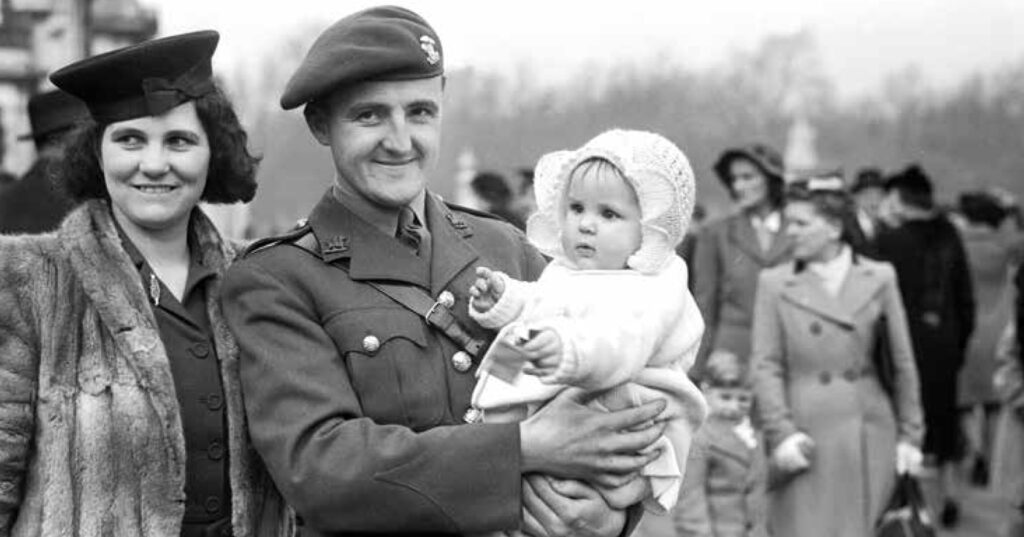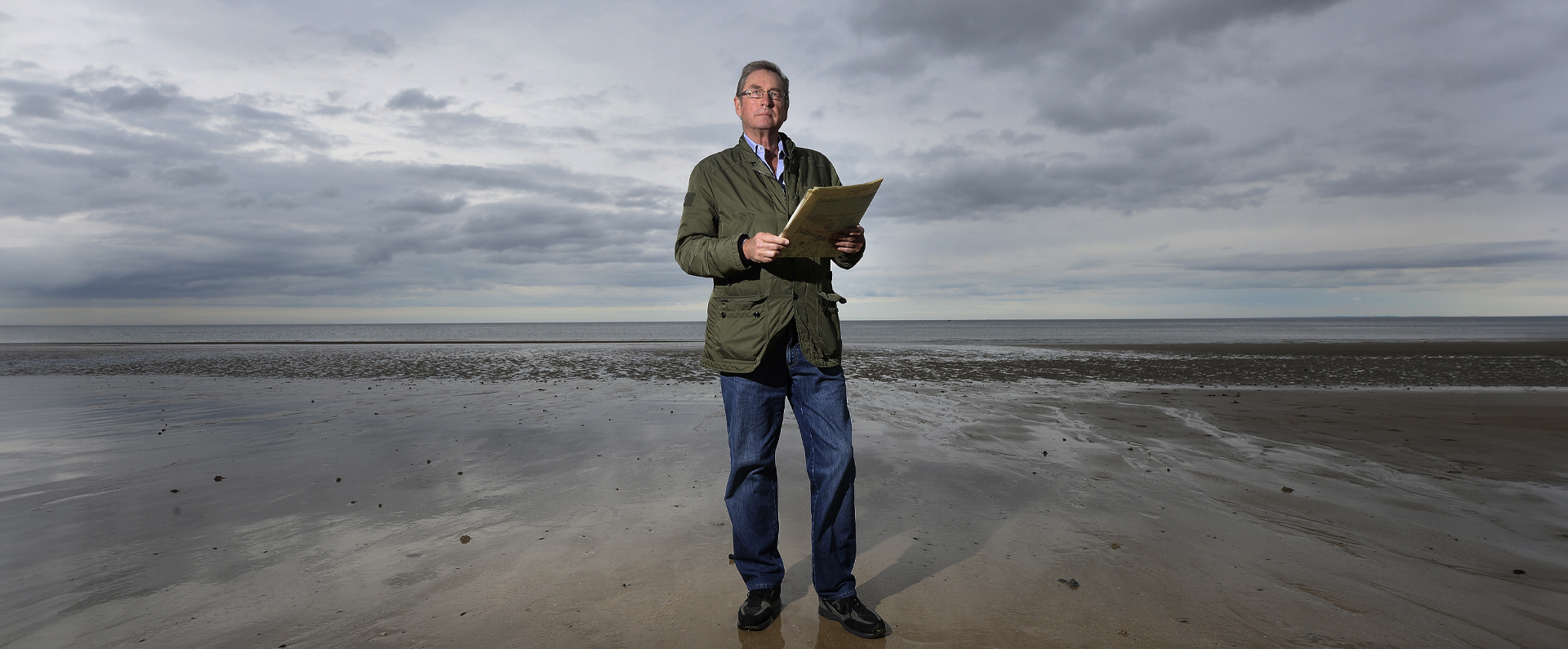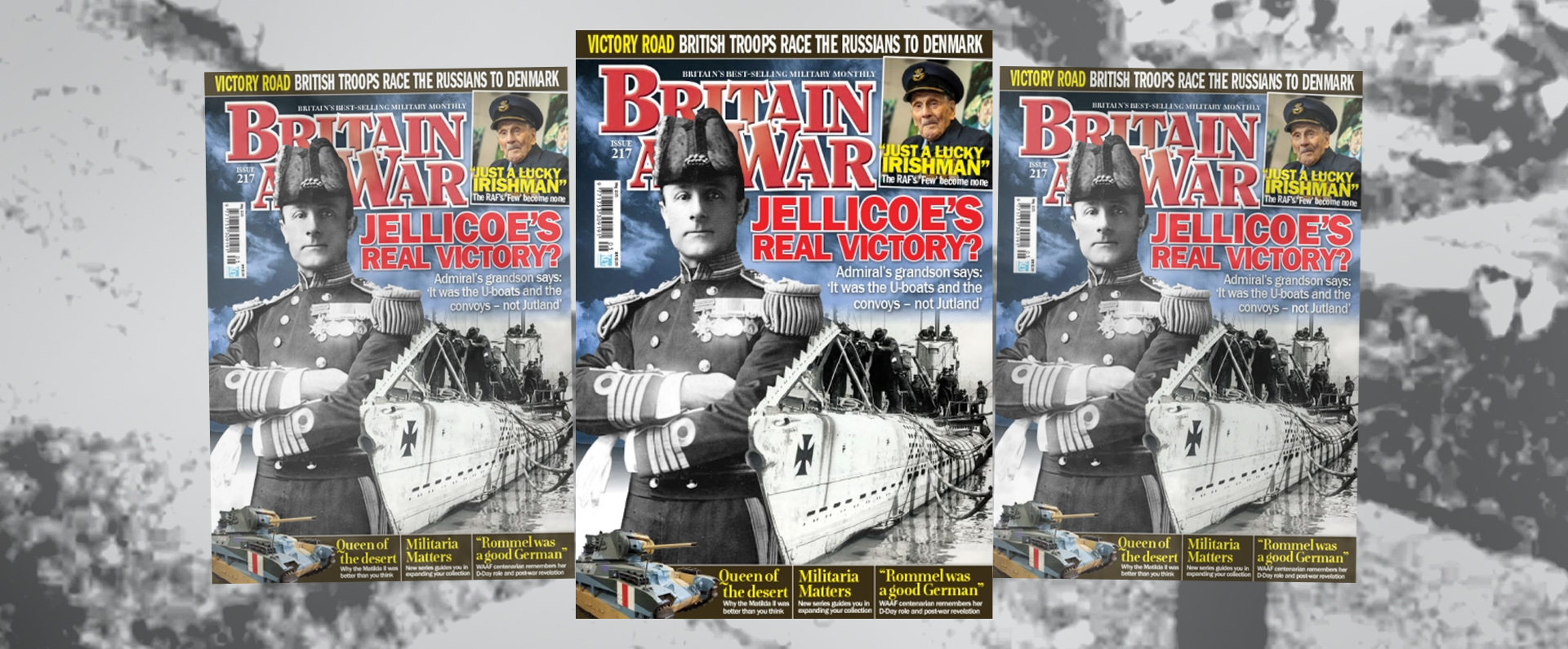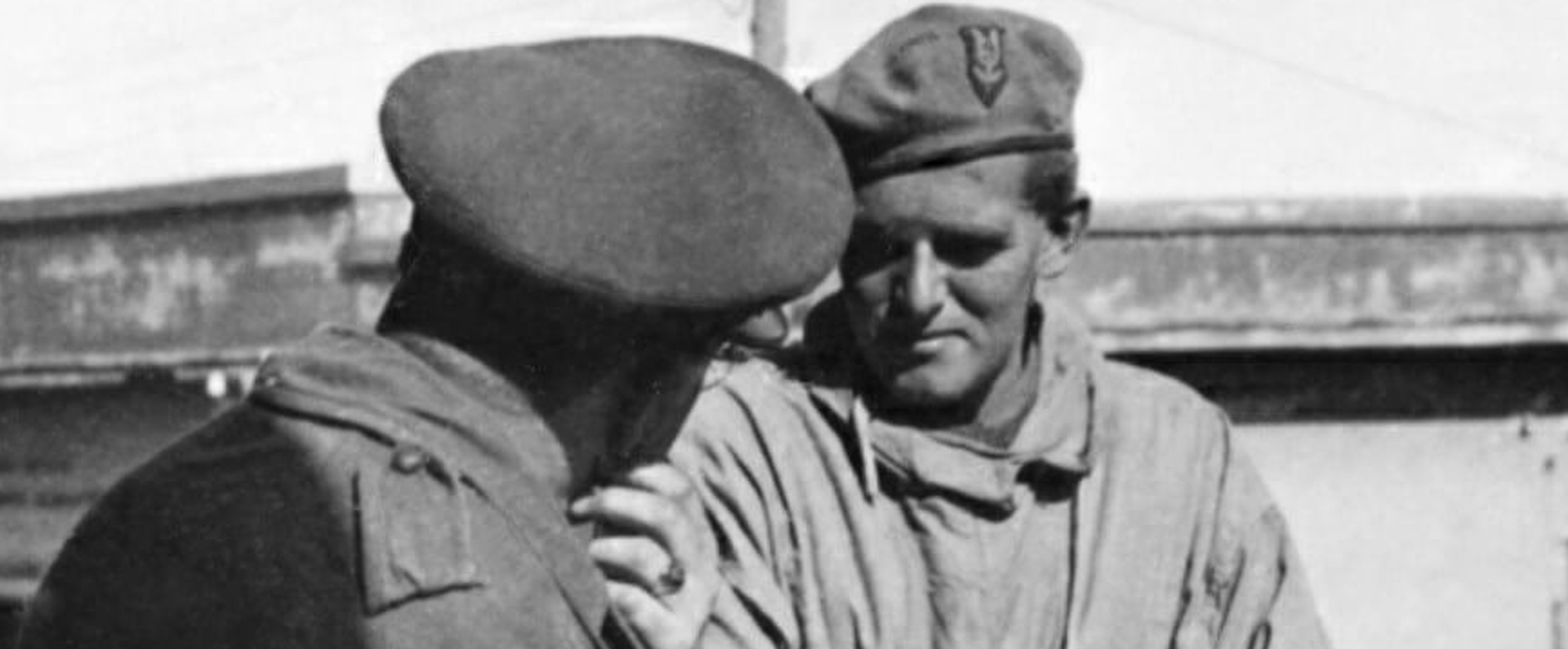
Published in Britain at War in December 2018.
Major Sir Tasker Watkins VC, GBE, PC, QC, DL: leadership
Given his immense courage on the battlefield, it is little wonder that, as President of the Welsh Rugby Union, Tasker Watkins was sometimes asked to address his nation’s players before a big international match.
As he attempted to inspire them to victory on the rugby field, he would compare their chosen sport to warfare since he stated that both required “a cool mind, discipline and self-sacrifice”.
As a talented player in his younger days, Watkins was hugely respected by those sporting the famous red rugby jerseys, who knew only too well why he had been decorated with the Victoria Cross during the Second World War.
Tasker Watkins was born in Nelson, Glamorgan, on 18 November 1918. The son of a Welsh-speaking miner, Bertram Watkins, and his wife Jane (née Phillips), the young Watkins divided his early childhood between his own parents’ home in Station Road, Nelson, and the nearby home of his grandparents in Shingrig Road.
He was the middle of seven children and had been christened with his grandmother’s maiden name. While still living in South Wales, he attended Llanfabon School and Pontypridd Grammar School. After his family moved to Essex, he attended Romford County School before working for Crookes Laboratory Ltd in the chemical industry. However, he was released from his job in order to take a degree in law and commerce at London University.
After the outbreak of the war, he served in the ranks of the Duke of Cornwall’s Light Infantry from 16 October 1939 to 16 May 1941 until, on 17 May 1941, he was granted an emergency commission as a second lieutenant in the Welch Regiment and was promoted to substantive lieutenant on 3 April 1942.
Various significant postings followed including, while in the rank of temporary major, a role as a senior instructor at the War Office Battle School at Llanberris, north Wales. Here Watkins earned a reputation as a hard taskmaster.
Shortly after the D-Day landings of 6 June 1944, Watkins reverted to his role as a substantive lieutenant and returned to the frontline, serving with the 1/5th Welch Regiment in Normandy from the end of July that year. He was part of the reinforcements that were sent out as the Allies tried to push their way through France in the wake of the Normandy landings.
On the evening of 16 August 1944, Watkins’s battalion attacked targets near the village of Bafour. His B Company came under a heavy and relentless machine-gun fire while advancing through corn fields that had been booby-trapped with mines.
By the time the men reached two enemy machine-gun posts, Watkins was the only officer left standing. By then, his men were isolated from the main British force and, to make matters worse, all radio communications were down between the two companies that had led the attack and Battalion HQ. The regimental records described a feeling of fear as the enemy appeared to be advancing from all sides: “The atmosphere was one of tenseness and helplessness. It was impossible to restore the situation.”
As the enemy closed in on the company, Watkins decided that he and his men would fight their way out of trouble and somehow get back to the British lines – and that he would lead from the front. He charged the first machine-gun post, personally, with his Sten gun, shooting the enemy manning it. Next, he led the charge on an anti-tank gun that was targeting his men. When his Sten gun jammed, he threw the weapon in the face of a German anti-tank gunner before shooting him dead with his pistol.
As B Company continued to try to get back to the Allied lines, it crossed the cornfield where it had come under attack earlier. Once again, the Germans opened up on the British soldiers. Watkins directed operations yet again and, when the enemy appeared to falter under the company’s rifle fire, he led a bayonet charge, killing several more enemy soldiers.
At dusk, having by then manoeuvred around the enemy’s flank, the company still found themselves separated from their battalion. At this point, Watkins, having assessed the situation, ordered his men to scatter. Before bringing his men to safety, he personally charged yet another enemy machine-gun post single-handed, killing or wounding all the enemy. For a time, he hoped to keep the position until reinforcements arrived.
However, still with no communications and with no signs of support, he eventually withdrew. At 1am, he brought in the remaining twenty-seven members of his company, along with some German prisoners: thirty-three men from his company had become casualties, killed or wounded. Watkins himself was unharmed and unbowed. “It didn’t surprise me at all. It was typical of him,” said Captain Morgan, one of those present, many decades later.
Watkins, by then an acting major, was, however, severely wounded in a subsequent action. He received his injures as the Allied forces advanced on Hertogenbosch, southern Holland: while crossing a canal in October 1944, he was hit by shrapnel in the right leg and lower abdomen.
While in hospital in Brussels, it looked as if he might have to have his leg amputated but, having been transferred to the Queen Elizabeth Hospital in Birmingham, it was decided that his limb could be saved.
It was while recuperating in hospital in Birmingham that Watkins learned he had been awarded the VC for his earlier bravery. His citation concluded: “His superb gallantry and total disregard for his own safety during an extremely difficult period were responsible for saving the lives of his men, and had a decisive influence on the course of the battle.”
Watkins never returned to the frontline but, after recovering from his injuries, was appointed Commanding Officer of the Royal Engineers Battle School at Penmaenmawr, North Wales. He received his VC from George VI at an investiture at Buckingham Palace on 8 March 1945.
He once said of his VC award: “I’m pretty grateful now…life’s very precious after all, it’s all we’ve got really. It’s easy to be philosophical out of battle but when you are heavily involved you don’t have time to think of such things. You get on with what you are doing, what you are called upon to do.” However, most of the time, his only comment on the VC was: “I am proud of that.”
During the war, in 1941, Watkins had married Eirwen Evans in Dagenham, Essex, and the couple went on to have a daughter and son. After leaving the Army in 1946, he left a considerable mark in two very different spheres of life: the judiciary and in rugby.
After moving to Llandaff, near Cardiff, Watkins trained as a lawyer and was called to the Bar in 1948. In 1965, he became a Queen’s Counsel and, in 1971 (the same year that he was knighted), he was appointed as a judge in the Family Division, followed later by the Queen’s Bench Division and the Court of Appeal.
Watkins was appointed Deputy Chief Justice of England in 1988 and worked closely with Lord Lane, then the Lord Chief Justice, on judicial postings and the administration of the criminal justice system. He asked High Court judges to fill in time sheets to show how they spent their working days, in an attempt to boost the case for more judicial manpower.
In 1991, he sat alongside Lord Lane in the historic appeal case that established that husbands living with their wives could be convicted of raping them. According to Lord Lane, this was “the removal of a common law fiction that has become anachronistic and offensive”.
Watkins retired from his legal career, aged seventy-five, having by then taken on a senior role in rugby: in 1968, he was elected as president of Glamorgan Wanderers (the team he had played for as fly half in his younger days) and then became chairman of the Welsh Rugby Union Charitable Trust, set up to help seriously-injured players, in 1975.
Finally, in 1993 he was elected as president of the Welsh Rugby Union, a post he held for eleven years until 2004.
Upon standing down from the presidency of the WRU in 2004, Watkins was made honorary life vice-patron of the WRU, of which the Queen is patron. For a time from 1947, Watkins was also variously a member of the TA Association, Glamorgan and Wales, and he served as president of the Royal British Legion of Wales from 1947 to 1968. He was also president of the University of Wales College of Medicine from 1987 to 1998.
In common with most VC recipients, Watkins was proud of his award but he always preferred to be remembered for his career achievements in the worlds of law and rugby rather than for his actions in war. However, shortly before Armistice Day 2001, he was asked to reflect on his VC award and replied: ‘You must believe me when I say it was just another day in the life of a soldier. I did what needed doing to help colleagues and friends, just as others looked out for me during the fighting that summer…
“I didn’t wake up the next day a better or braver person, just different. I’d seen more killing and death in 24 hours – indeed been part of that terrible process – than is right for anybody. From that point onwards I have tried to take a more caring view of my fellow human beings, and that, of course, always includes your opponent, whether it be in war, sport or just life generally.”
In August 2007, Watkins fell heavily at his home in Llandaff. He was admitted to the University of Wales Hospital, where he died on 9 September, aged eighty-eight. Later that same day, the Welsh players wore black armbands for their opening match of the Rugby World Cup in Nantes, France. He was cremated after a funeral service at Llandaff Cathedral, where there is also a memorial to him in the Welsh Regiment Memorial Chapel. There is also a fine statue in his honour at the Millennium Stadium, Cardiff.
There were many affectionate tributes to Watkins after his death. Rhodri Morgan, then the First Minister of Wales, described him as “one of the outstanding Welshmen of the twentieth century”. I purchased Watkins’ medal group privately in 2008 and I am immensely proud to be the custodian of this wonderful man’s gallantry and service medals.
There is a lengthy and splendid tribute to Watkins by W. Alister Williams in his book Heart of a Dragon: The VCs of Wales and the Welsh Regiments 1914-82. Williams writes: “Tasker Watkins was one of those rare men who rose from very humble beginnings to succeed in whatever field of endeavour he turned his hand to.”
Download a PDF of the original Britain at War article
For more information, visit:
LordAshcroftOnBravery.com


